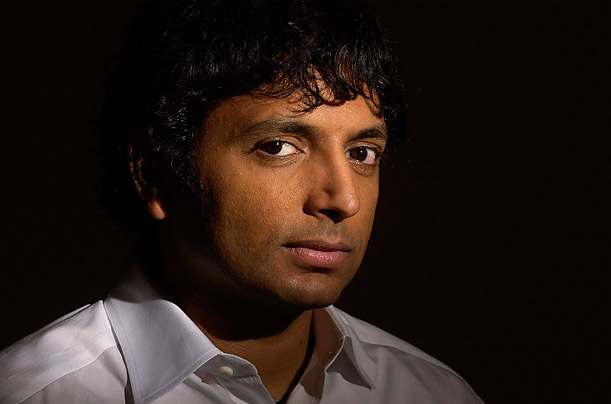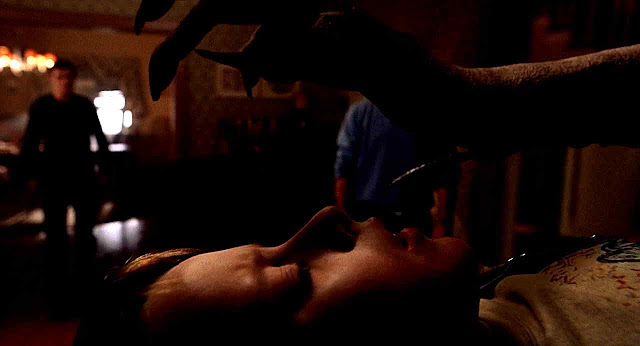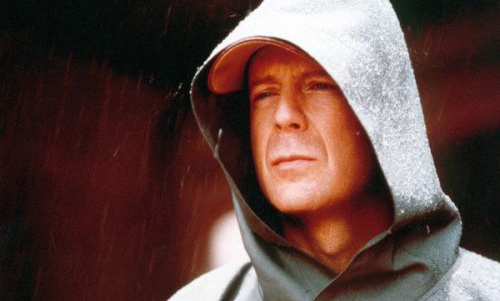 |
|
Hey losers… Don’t feel sorry for me. What iconic movies have you written? Have you been on the cover of Newsweek? F–k you, motherf–kers!
|
The man has a point.
Many years ago, I was doing research for a script assignment in Philadelphia and was being given a tour of the city by the lady that ran the city’s film bureau. At one point, while we were eating cheesesteaks (what else?), her eyes suddenly lit up for the first time and she told me she had just read the best script she ever read in her life. It was called The Sixth Sense and it had just sold for a huge amount and already had Bruce Willis attached. I said I’d read about the big sale in Variety and what was so special about it? For a couple minutes, she stammered in vain, trying to give me a full rundown on the plot…
Finally, she gave up and asked, “Can I just tell you the secret?”.
“Sure”
“He’s dead. He’s dead the whole time and doesn’t know it”.
I admitted that sounded like a pretty cool twist. (I had no idea)
Through the rest of lunch she could not stop gushing about the script and the extremely talented young Phillie-native writer/director who had hit the Hollywood jackpot.
I won’t try to pretend I wasn’t incredibly jealous in that moment, and again when I finally saw the finished movie. I was at a disadvantage in a way. I wish I had been able to experience it fresh like most people and really feel that dizzying reveal at the end. But I could clearly see how well it worked. The climax delivered an emotional wallop that made it a genuine pop culture sensation. And honestly, as a struggling writer, I was actually inspired by the exciting breakthrough of this unknown “guy with the strange name”. Especially since he seemed to bring back into vogue a slower, more suspenseful style of storytelling.
Oh, PS> The Philadelphia movie I was working on? Never happened. Surprise, surprise.
Cut to almost fifteen years later and, ironically, I find myself feeling sorry for M. Night Shyamalan.
How does that happen?
The commercially and critically excoriated After Earth makes FOUR high-profile bombs in a row, and if tragedy is a fall from a great height, then his is probably the most dizzying Shakespearean skyscraper-dive in modern film history. He went from being the hottest Wunderkind in the business, getting a couple million per script and being called the “next Spielberg”, to somehow becoming a snarky punchline and punching bag. There has always been a “movie jail”, of course – and lots of directors have been banished for one single bomb (Elaine May/Ishtar, Martin Brest/Gigli) but even by those standards, Shyamalan’s bad run is cringeworthy in it’s high profile.
When I Googled his name to see if I was spelling it correctly for this piece, one of the first phrases that pops up is “M. Night Shyamalan sucks”. Think about that for a moment. It is such a commonly used phrase it pops up when his name is only half-written. And this isn’t the opinion of critics or movie insiders, this is now the conventional wisdom/bias of civilian moviegoers who know little to nothing about the business.
I was flipping channels the other night and Jay Leno used Shyamalan as the butt of one of his lame jokes. The audience at least had the decency to groan and let him know they thought it was a low blow – but the bottom line was they GOT the joke, they knew the crashing & burning he was referencing.
Let’s face it. We love nothing more than building people up to knock them down.
In an earlier era, when, say, Peter Bogdonavich or William Friedkin suffered a series of flops, the general public wasn’t so attentive to it – they had only one eye on the people behind the camera anyway, and there wasn’t the same entertainment coverage at the time or a bloodthirsty internet. These guys could slink away for a while and rest assured their classic movies were going to be what was remembered over time. I’m afraid Shyamalan is not getting a similar opportunity for a graceful temporary exit. It’s like people everywhere are wishing for and reveling in his every humiliation.
It’s true in some ways he invited this public flogging. If you go back and read his old interviews, the hubris flows pretty thick. He talks about himself in the third person. His name was now a “brand”, a Hitchcockian seal of approval. His premature production company was managing dozens of projects. He demanded his scripts be delivered by messenger and studio execs had only a brief window in which to read them on the spot before bidding. It was his rules or nothing. He was a phenom and he knew it.
(“The Man Who Heard Voices” by Michael Bamberger is an excellent book that documents his falling out with Disney over the script of Lady In The Water. It’s a blistering critique of an ego run amok, but the writer also clearly likes Shyamalan – and Shyamalan deserves credit for never cutting Bamberger off or scuttling the book as things went from bad to worse)
And, sure, I bristled when they made that ridiculous comparison with Spielberg…
But who would have guessed he would end up paying so heavily for a little bit of hype?
If his genius was exaggerated at the beginning, his “awfulness” now is also blown out of proportion.
So we have the indisputable triumph of The Sixth Sense on one side, and a run of bad films on the other. (Only The Happening is jaw-droppingly awful) In between those two poles, Unbreakable has a brilliant concept at it’s heart and falls just short of greatness in my opinion. Revisiting the film now, his signature slow pacing is so drawn-out that it approaches self-parody, but there’s some great stuff there. Signs is a terrible mess, but it did provide enough well-executed shocks to be a big popcorn hit. And The Village is, I think, his most misunderstood film and much better than it’s reputation. The twist may be a cheat, but he creates a wonderfully creepy world and makes a sly commentary on where America was post 9/11.
All this sounds suspiciously like any director’s up-and-down career.

He’s in a rut. And like all ruts, when you overcorrect one way or the other it can become a self-perpetuating nightmare. But is his career really over? Of course not. Not unless he wants it to be. Obviously he connected with the audience before and he can do it again.
It was ever thus – every artist stumbles and every artist has the potential for a comeback.
In any case, he doesn’t need us to teach him humility anymore. As many have noted, After Earth was the first of his post-fame films to not feature his name prominently on the movie poster. That had to be a very sober moment for him. And the fact that Will Smith’s stardom could not deliver him at least a big box-office windfall means he will have to “start over” to some degree – making a much smaller film, that will hopefully surprise his critics and return a tidy profit. Maybe TV. Maybe buying the rights to a hot property or working with someone else’s script. But he certainly has the time and money to regroup.
Meanwhile, people need to let it go.
Even a jealous screenwriter can see the schadenfreude has gotten out of control.




